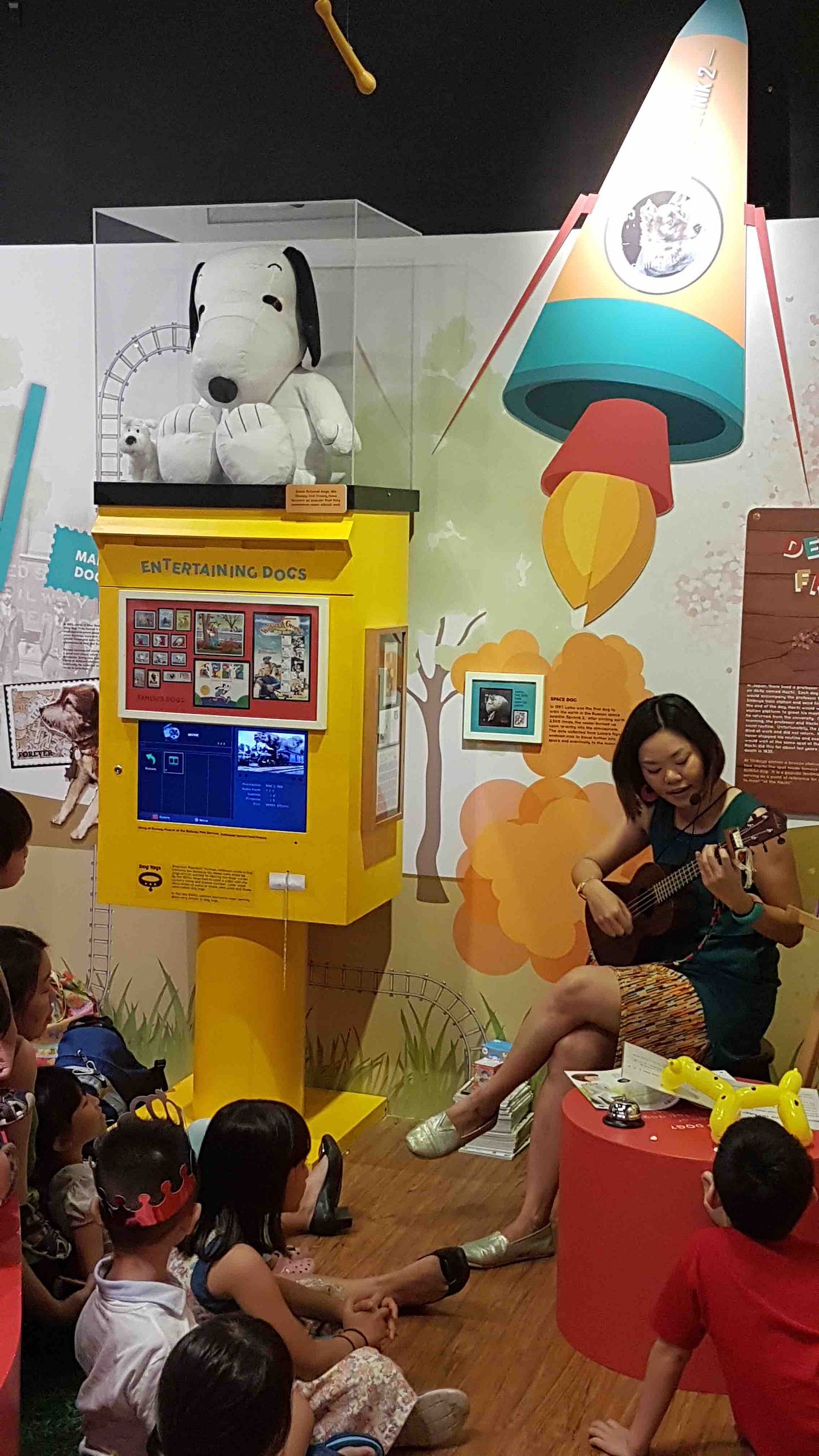5 valuable lessons from a cool teacher
Chen Wei Teng shares her experiences as an educator and as the author of Murphy, See How You Shine!
When children look to us for wisdom and guidance, it can be exhilarating – and daunting.
Chen Wei Teng, an author and a teacher, probably knows this feeling all too well. She’s been working with kids with learning difficulties, such as dyslexia and ADHD, in Singapore for the past 13 years. She wants to do right by them.
But it’s not that tough a task – not when her students inspire her so much. Wei Teng particularly admires them for their “great resilience” and ability to care for others despite their tough situations.
“I’m not entirely sure I can do it if I’m in their shoes,” she admits.
“They’re some of the most sensitive individuals I’ve ever seen. It’s like they have this ultra-sensitive empathetic chip embedded in them that can be activated easily, and which may not be present in their peers who are more neurotypical.
“And because they’ve experienced some of life’s struggles at an early age – a taste of academic failure, bullying in school, a lack of understanding from adults (which can be their parents or teachers, unfortunately) – they’re more attuned to the suffering they see around them.”
Her mission is clear
As it’s always been – that is, to use “whatever knowledge and resources” she can gather to help these kids become their best selves.
One resource is her children’s picture book, Murphy, See How You Shine!, which was illustrated by Quek Hong Shin.
“It’s about a blind assistance dog called Murphy, who’s always there for his owner, Candy, who has Type 1 diabetes – but he doesn’t know how much of a blessing he is to her,” Wei Teng relates.
“He encounters a young boy subsequently who makes him realise the unique gift he has within him, which he can use to help the people around him.”
It’s a story that was 10 years in the making, and it came to life with her desire to “raise awareness and funds for two schools in Nepal”, and with “reading about Stella Chew – the lady who inspired me with her efforts to break new ground for herself and other Type 1 diabetics by harnessing the strengths of their dogs to be diabetic-alert”.
The book won Gold in the Children’s Picture Ebook category at the 2018 Moonbeam Children’s Book Awards, and received a five-star rating from book-review site Readers’ Favorite that year as well. Plus, it has been taken onboard by Armour Publishing under its “Live to Inspire” series.
“It has helped me to connect with people in incredible ways,” Wei Teng recounts. “It’s most rewarding when I’m able to reach out to my students, as they’re the population that inspired the story.
“They understand the key messages I wanted to tell – possibly because they’ve seen every kind of difficulty and challenge in life at an early age. Hence they can identify with the various themes very well.
“I’m very grateful to Murphy too, for it has become a tool for me to reach out to people from different corners of Singapore and the world through my storytelling sessions,” she adds.
“It allows me to make more friends, learn different perspectives, and experience life richly.”
We can have that too
Even if we don’t have a Murphy, and we’re not parents or teachers.
Like Wei Teng, we can help a child grow with her tips, as she believes “there’s an ‘intuitive’ educator in all of us’.” We can use them with our friends and family too.
Because who wouldn’t want their loved ones to succeed?
#1 Teach children from young the importance of being kind
“When parents go out of their way to model that value to their children and to the people around them, the children will pick it up and have that ingrained in them. When schools and teachers value kindness more than anything else, they can help nurture that invaluable trait in children who may otherwise not grow up in families filled with love (and kindness).
“And why is it important to be kind? Humans, by nature, are driven by the need to do things that are meaningful and purposeful – and when children realise that their actions can make a difference to the people around them, it’s almost like a drug that makes them want to do more because it boosts their self-esteem. Victor Frankl (author of Man’s Search for Meaning) once said, ‘Those who have a ‘why’ to live, can bear with almost any ‘how’.”
#2 Give them unconditional support
“Affirm children or teens for the effort they put into something, and not the end product. For instance, praise them for being willing to forgo that one hour of TV to learn their spelling (regardless of the outcome), instead of only when they score full marks.
“Children and teens who are struggling with learning difficulties, or who come from disadvantaged backgrounds, more often than not are unlikely to garner as much affirmation and praise for good ‘end products’ (like an A in a Maths test) as frequently compared to their peers. Yet these are the very individuals who need more praise and affirmation than anybody else, because their self-esteem is so low and their confidence takes a nosedive every few days (like when they’re singled out for getting into trouble in school, or scolded for not doing their homework).
“It’s important to affirm our children generally for their efforts, and not just those who have learning difficulties. This is so our children will grow up with a growth mindset that they all have the capacity to be better today than yesterday (as opposed to a fixed mindset where all that matters is the end product).
“This is going to help the child realise the area he is so willing to invest his time and effort in. In time, you may help to nurture a child who discovers his niche early in life, which is confidence-boosting.”
#3 Zero in on the details
“When affirming or praising, do so specifically instead of generally. For example, praise a child for making his bed in the morning instead of simply keeping the place clean.
“Giving specific praise lets the child know that your praise really comes from a place of love and is genuine (you notice him doing something that’s different). This has a much greater impact than sweeping praise.”
#4 Acknowledge the feelings of others
“This is something I learnt early on from senior teachers. I still remember observing a senior teacher who walked into a class knowing that there are some students who were having a bad day, or were simply in a foul mood (possibly something happened at home). She didn’t just go on and start teaching (which some teachers might do because we just wanted to get down to teaching!).
“Instead, she acknowledged that the student wasn’t feeling too good about something, and suggested that the student could talk to her (if she wished) at the end of the lesson.
“They were just simple utterances, but the words had the effect of humanising the student. When the student realised that her feelings were understood by a significant adult, it had the magical effect of calming her down. I realised that what the teacher did was to give her the gift of being human at that moment. Not only did it defuse or thwart possible difficult situations that would otherwise have arisen, but more importantly it got the student to momentarily cast aside her unstable emotional state and ready herself to stay focused for the lesson.”
#5 Recognise that “gifts” can exist in any form or shape
“Make explicit the goodness of the child, which he (and the people around him) sometimes take for granted. Highlight it so that the child learns to appreciate it in himself.
“In my work with children and teens who come from disadvantaged backgrounds, where the focus is on putting food on the table or on the day-to-day solving of life’s challenges, it’s inevitable that the significant adults around them are sometimes too busy to highlight the good things done by the child.
“For instance, there’s the teenage boy who puts aside his plans for the day so that he can be at home to look after the younger cousin whose mom (a single parent) is out for work. The onus is on the other significant adults around them to highlight the goodness of his acts and to help him recognise the impact of his seemingly little action.
“Like what one of my students said, her gift is that she’s able to cook (at the tender age of 13!) and hence able to feed her entire family. What a gift she’s been bestowed upon.”

Who knows? While incorporating Wei Teng's suggestions into your daily life, you might even discover your own special gifts in the process.
For more on Wei Teng and Murphy, See How You Shine!, you can visit her Facebook; for more on her cause in Nepal, click here and here.





